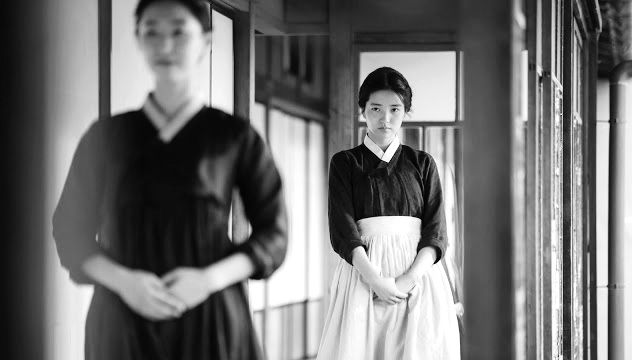Park Chan-Wook’s The Handmaiden Reignites South Korean Film

Acclaimed director Park Chan-Wook released “The Handmaiden” to great anticipation but somewhat lackluster enthusiasm. The film netted South Korea an invitation to compete in the prestigious Cannes film festival after a four-year drought, and in both premise and presentation it fulfills the promise implied by such an honor. The film finds itself amid the destitution and deprivation of Korea under Japanese occupation in the 20th century, and it follows the ambitious and admirably conceived project of a pickpocket and a conman. The pickpocket, named Sook-hee, masquerades as the titular handmaiden to a mostly mysterious but wealthy Japanese heiress named Hideko. Her conman confidante and mastermind of the heist conceals his own origins as a manservant from Jeju Island and similarly postures as a cultured Japanese aristocrat who vies for Hideko’s hand in marriage. He plans to rob the lady blind and throw her confused into an asylum in Japan and split the earnings with Sook-hee. Sheltered Hideko knows nothing of this, so she continues to trust and open up to her new handmaiden. But as the fruits of sly labor ripen, Hideko’s warmth and Sook-hee’s reciprocation become colored with hints and hues of attraction, and the cogs of the great scam begin to creak.
It is a bit difficult to talk about Park’s erotic spectacle based on the synopsis given above because the plot veers on and off this course across its 145 minutes. The initially straightforward heist takes edge-of-the seat twists and turns at moments when one is more than ready to lean complacently on their cushion, but by the epilogue, there is a dissatisfying sense that one has returned to the linear trajectory implied at the beginning of the film. That is not to say that the film itself is subpar or even dissatisfying. There is, in fact, much to adore about Park’s feature, particularly the scenes that exemplify the director’s powers. For a film that so restlessly moves from revelation to revelation, there lies a serenity in every walk through the garden and strand of wind that threads through the pink sakura leaves. This co-exists uneasily with an invisible smog of collusion that shrouds the mansion’s bookshelves and basement in unspeakable trauma and suspense. The film capitalizes on this enigma from beginning to end. When one is not curious about the next turn of affairs for the characters, they are peeling open another layer of the two leads’ states of mind. And as the extravagance of the mansion slowly loses its gloss and reveals the suffocating prison it has become for Hideko and Sook-hee, one feels the weight of cinematic wisdom Park has gleaned over his long and landmark career.
So it feels like the master is cheating when one sees his name roll across the screen and the movie has lapped its gorgeous field only to return to its starting line. The synopsis, insofar as it accommodates the sinuous and unpredictable plot, is absolutely useless. But as shorthand for what the movie is trying to communicate within its runtime, it is more words than necessary. The film is about a heist, but both its perpetrator and victim have already been robbed by the times. It is common knowledge to domestic audiences in Korea that Sook-hee’s choice of lifestyle is out of desperation instead of desire in the shade of the imperial sun. Without indulging in spoilers, Hideko possesses a history of suffering to render her character distrustful and leery of people in general. In a moment of expertly directed serendipity, the two have a romantic encounter amid dishonest circumstances and confront the truth of their mutual privation and desire for each other. This much is to be celebrated, especially given that South Korea today continues to treat queer relationships with storied suspicion. But this Romeo and Juliet relationship between the scammer and the scammed experiences a wrenching turn at the film’s halfway mark. The perspective with which the audience has viewed the relationship inverts. This, for me, seemed the perfect moment for new thematic complications, where the imperialist realities and the climate of exploitation strike back with vengeance. But the twist ultimately negates itself as our newfound perspective fails to change our interpretation of the events already witnessed. Needless to say, it is a regrettable loss of opportunity. The aforementioned comparison with Romeo and Juliet is barely apt. When the movie focuses on Hideko and her Capulets, one can estimate the depth of her pit, and the reasoning behind her desperation to climb out. But what of the Montagues? Sook-hee’s own wants and needs do not relate to her social and political context. They appear rather threadbare and uninteresting next to Hideko’s. Perhaps Park believed that the public knowledge of the horrors of the times could fill the gap left by the film. If so, he miscalculated.
In South Korea, the film is called “Agassi,” which refers to Hideko rather than her handmaiden. The different titles refer to the unfolding process of identification and unity between the two main leads, but it also unfortunately points to the movie’s imbalance when it comes to characterization. While it does not detract from the craft and beauty of Park’s newest outing, the aforementioned gap hurts the film, and the only thing that can satisfactorily plug it is the hope that the world has not yet scaled the mountain of Park’s talent.





Comments ()